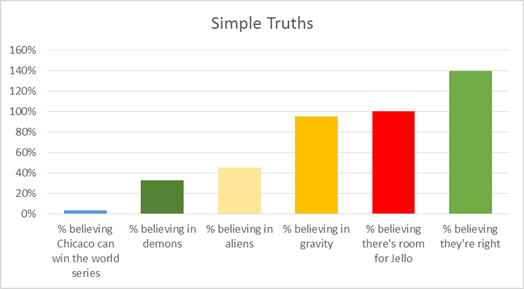Roger Zelazny is one of my favorite writers of all time, in no small part because of The Chronicles of Amber. Hell, I once contemplated changing my name to Corwin. Read the Amber series to get that.
Regardless, when the Fictorians said they wanted us to do a blog on our favorite book that nobody ever heard of, I chose something that has stuck with me over the years because of a personal fascination. When I reread the work for this blog, I was surprised to see that Zelazny had as much or more of an interest in the author—and the work—as I do, and perhaps for the same reasons… although Zelazny’s appreciation probably runs deeper because… well… Zelazny. In the forward, he wrote about the author and this work:
“I read the beginning to see what he was doing. I don’t know him personally. I know little about him, save what I can tell from his writing. When I realized where he was going with this story, my first reaction was, “He isn’t going to be able to pull this one off.” Not without getting trite, or cute, or moralistic—or falling into any number of the many pitfalls I foresaw with regard to this material. I was wrong. He not only avoided them all, he told a fantastically engaging story with consummate grace and genuine artistry.”
I’d cut off a thumb to get praise like that from Zelazny… the left one, anyway, because I hit the space bar with my right thumb.
Now here’s the opening sentence to my favorite novel that you probably never heard of:
“Snow, tenderly caught by eddying breezes, swirled and spun in to and out of bright, lustrous shapes that gleamed against the emerald-blazoned black drape of sky and sparkled there for a moment, hanging, before settling gently to the soft, green-tufted plain with all the sickly sweetness of an overwritten-sentence.”
In that first sentence, you have delicious, savory, thick verbiage that rolls off the tongue like honey and hot bacon fat… and wraps up with that same tongue pressed squarely into a cheek. Irreverence, it seems, is not always a bad thing.
The novel is To Reign in Hell by Steven Brust. Sure, everyone (well, everyone who’s anyone) has heard of the Jhereg series, and that, too, is one of my favorites. Jhereg is what put Brust on the map, at least for me, anyway. But To Reign in Hell is something different. Something special.
Let me point out that I’ve had a fascination with treatments of the Devil for a long time. In truth, my fascination with Western Civilization’s most infamous villain started when I turned away from the Catholic Church at the age of seven. I should point out, before the whispers start, that my fascination probably isn’t what you think. I’m not interested in gleaning power or sacrificing livestock to appease some ridiculous icon of evil. Nor am I interested in tearing down its antithesis. No.
Evil, such as it is, resides in the hearts of men—and women—alone. And whatever good our species is capable of rests in the same, meaty tissue. Where one seeks strength is as individual a decision as I can imagine, and I could fault no one for seeking strength wherever they might find it. Life can be a trial.
What I find interesting is the story behind that icon of evil. The evolution of Western Civ’s theism can arguably be said to have started with the Torah and Old Testament, transitioned into the New Testament, engendered the Quran, and has splintered and evolved into myriad interpretations of a common theme.
And the Devil is there, in every one of them, in one form or another.
Now, there has always been a phrase in that story that bothered me: “favorite above all others.” Satan, originally “the morning star,” is said to haven be the first angel, and favorite to Yahweh. Imagine that: the best of friends falling apart so far that an entire world lies between them and an endless cornucopia of souls lies in the balance. How does that even happen?
Steven Brust, also one of my favorite writers (again, probably not why you think, and yes, I have a lot of favorites), appears to have been fascinated by this very same conundrum. Like any good speculative fiction writer, he asked himself where Yahweh and Satan might have come from. Then, quite logically, he asked himself how they ended up where they did, one ruling in Heaven and one reigning in Hell.
It’s a story of love, naturally, and how the love between reasonable beings can be twisted and turned and corrupted by… well, there are no spoilers here. What I will say is—true to the Bible—deceit and pride are things that can bring us all to our nadir and literally ruin everything.
I abhor deceit more than pretty much anything, so this work touches me deeply. And as I read through the text, I was struck by something that has been troubling me for the past decade-and-a-half. It is also why I think To Reign in Hell may end up being timeless, or at least should be.
This country, perhaps the world, has lost sight of what Truth means… why it’s important… and why those who shit on it everywhere we look should be brought to task.
Look around America these days, just take a good long look at how two camps are at each other’s throats in damn near every news report. Those camps are being goaded on by pundits who take great delight (as well as plenty of power and monetary gain) by fanning the flames with deceit and half-truths… on both sides. Clearly, there are some who feel that there is more to be gained in conflict than in working together.
Such is the true nature of the Beast.
To Reign in Hell is something that all Americans alive today should read. And if they did, I could only hope they might seek out their own Abdiel, wherever it might be hiding. And do what comes naturally.

 The music was a dirge, some long-forgotten Celtic lament full of wailing. It washed over me like surf over a half-buried corpse at low tide. Ira stood behind the bar cleaning the same glass he’d been running a dirty towel over for the past ten years.
The music was a dirge, some long-forgotten Celtic lament full of wailing. It washed over me like surf over a half-buried corpse at low tide. Ira stood behind the bar cleaning the same glass he’d been running a dirty towel over for the past ten years.